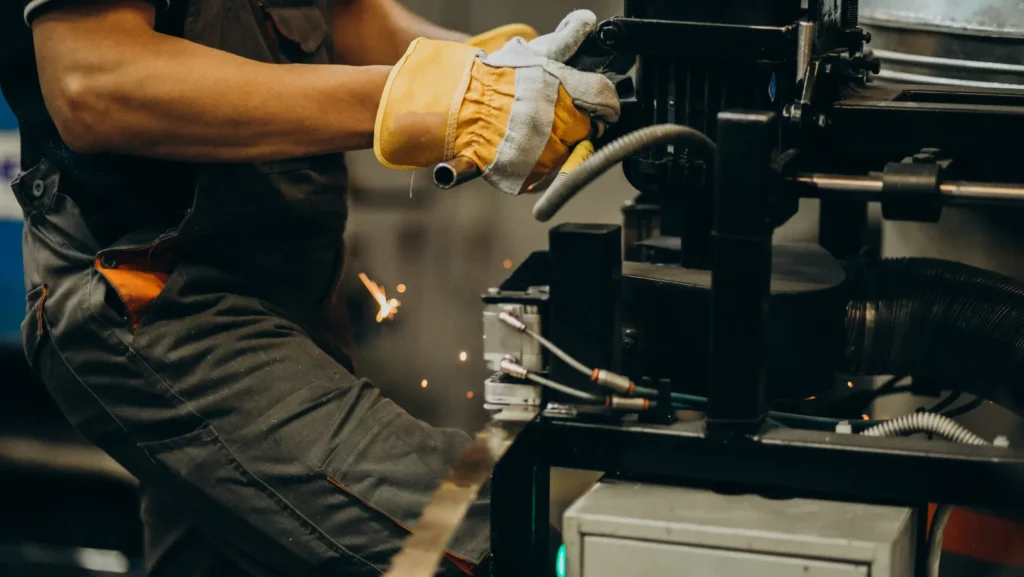A Guide to Maintaining Commercial Kitchen Equipment in Nigeria

Introduction
Just like any high-performing machine, proper maintenance is crucial to ensure the longevity, optimal performance, and safety of Industrial kitchen equipment in Nigeria. This guide will equip you with the knowledge and practical steps to maintain your commercial kitchen equipment effectively in Nigeria.
The Importance of Regular Maintenance
Extending the Lifespan of Your Equipment
Regular maintenance helps prolong the lifespan of your commercial kitchen equipment. By addressing minor issues early on and keeping components clean and well-lubricated, you can prevent premature wear and tear, ultimately saving money on costly repairs or replacements.
Ensuring Safety and Optimal Performance
Maintaining equipment ensures that it operates safely and efficiently. Malfunctioning or poorly maintained equipment can pose safety hazards to your staff and customers. Regular maintenance checks can identify potential safety risks and address them before they escalate into more significant problems.
Reducing Repair Costs and Downtime
By staying on top of maintenance tasks, you can reduce the likelihood of unexpected breakdowns and minimize downtime in your kitchen. Scheduled maintenance allows you to address issues proactively, preventing them from escalating into costly repairs that disrupt your operations and impact your bottom line.
Creating a Maintenance Schedule
Daily, Weekly, and Monthly Cleaning Tasks
Implement a comprehensive maintenance schedule that includes daily, weekly, and monthly cleaning tasks for each piece of equipment. Daily tasks may include wiping down surfaces and emptying grease traps, while weekly tasks could involve deep cleaning and sanitizing. Monthly tasks might include inspecting and servicing specific components or scheduling professional maintenance checks.
Regular Inspections and Preventive Maintenance
In addition to routine cleaning, conduct regular inspections of your equipment to identify any signs of wear, damage, or malfunction. Tasks such as replacing worn-out parts, lubricating moving components, and checking for leaks or signs of damage. Addressing issues promptly can prevent them from worsening and ensure that your equipment continues to perform optimally. Consider implementing a preventive maintenance program that includes scheduled inspections and servicing by qualified technicians.
Maintaining specific equipment:
Ovens and stoves: Regularly clean spills, check burners for proper ignition and gas leaks, and inspect and replace oven seals and thermostats as needed.
Refrigerators and freezers: Defrost regularly, clean door gaskets and seals, and monitor temperature control settings.
Deep fryers: Filter and replace oil regularly, clean heating elements and baskets, and check for leaks in the oil tank.
Mixers and food processors: Clean blades and attachments thoroughly, check for wear and tear on moving parts, and lubricate as needed.
Cleaning and Sanitizing Procedures
Following Safety Guidelines to Prevent Accidents
When cleaning and sanitizing equipment, it’s essential to follow safety guidelines to prevent accidents and ensure food safety. Use appropriate cleaning agents and sanitizers, and ensure that staff are trained on proper cleaning procedures and the safe operation of equipment. Provide personal protective equipment (PPE) as needed to protect against chemical exposure and other hazards.
Finding Qualified Service Providers in Nigeria:
Tips for Choosing a Reputable Equipment Repair Company
When seeking maintenance or repair services for your commercial kitchen equipment in Nigeria, consider the following tips:
- Reputation: Look for a service provider with a reputation for reliability, professionalism, and quality workmanship. Ask for recommendations from colleagues or industry associations, and read online reviews to gauge customer satisfaction.
- Experience and Expertise: Choose a service provider with extensive experience and expertise in servicing commercial kitchen equipment. Verify that their technicians are properly trained and certified to work on the specific types of equipment you own.
- Availability and Responsiveness: Select a service provider that offers timely and responsive customer support. Ensure that they can accommodate your schedule and respond promptly to emergency service calls when needed.
- Warranty and Guarantees: Inquire about warranties and guarantees offered by the service provider. A reputable company should stand behind their work and offer assurances of quality and satisfaction.
Investing in proper maintenance now can yield significant cost savings and operational efficiencies in the long run, allowing you to focus on what you do best—delivering exceptional cuisine to your customers.